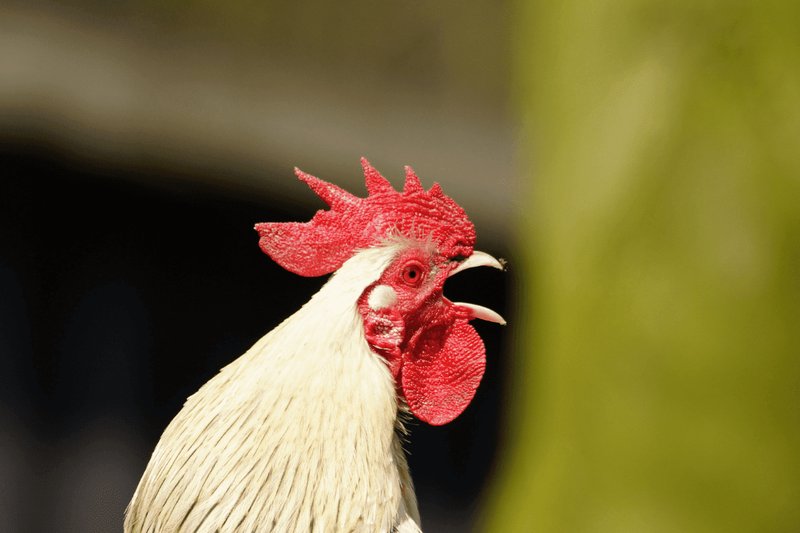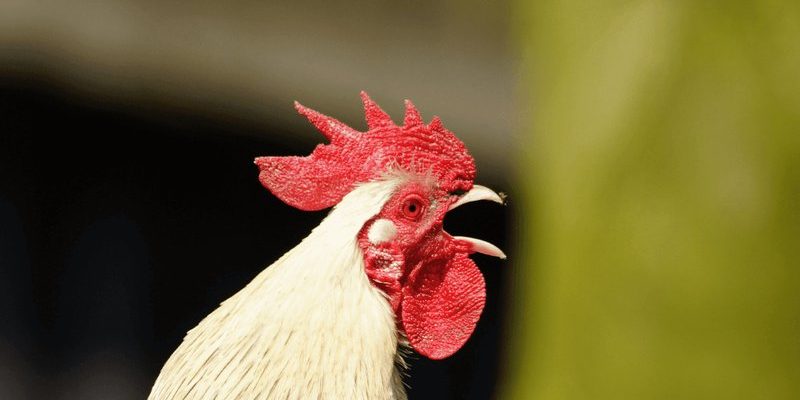
Imagine you’re at a lively dinner party; the chatter, laughter, and whispers all communicate how everyone feels. Chickens do the same thing, but instead of words, they use a range of clucks, crows, and squawks. Each sound has a story to tell, and by tuning in, you can learn a lot about your feathery friends. So, let’s dive into the world of chicken vocalizations and figure out what those little *cluckers* are really trying to say!
Types of Chicken Sounds
Chickens make a variety of vocalizations, which can generally be categorized into a few main types. Here’s a breakdown:
- Clucks: These are the most common sounds you’ll hear. There are many variations of clucks, each signaling different emotions or situations.
- Crows: Typically made by roosters, crows serve as a way to assert dominance and announce territory.
- Squawks: These sounds usually indicate distress, often signalling that something’s wrong or that they feel threatened.
- Chirps: Often heard from chicks, chirps are a way for them to communicate with their mothers or to express excitement.
Each sound serves its purpose, and recognizing these can make you more attuned to your chickens’ needs.
What Clucking Means
Let’s start with one of the most familiar sounds: the cluck. When you hear a hen clucking, she might be saying a few different things. One type of cluck, often referred to as a “content cluck,” indicates that a hen is relaxed and happily pecking around. Think of it as the chicken equivalent of a satisfied sigh!
On the other hand, if the clucking is rapid and persistent, it usually means that the hen is trying to communicate something urgent—maybe warning the flock about a potential predator. When a hen clucks this way, it’s each bird for itself! They want to ensure everyone is aware and ready to take cover.
It’s pretty fascinating that subtle differences in sound can convey so much. Next time you hear clucking, take a moment to observe their behavior. You might just uncover a little drama in the henhouse!
The Rooster’s Call
Roosters are known for their iconic crowing, especially at dawn when they announce the new day. But why do they crow? Honestly, it’s more than just a morning wake-up call. Roosters crow to establish their territory and assert dominance over other roosters. Think of them as the neighborhood watch—keeping an eye out and letting other birds know “Hey, this is my turf!”
Crowing can also occur throughout the day, especially when a rooster feels threatened, is excited, or has noticed something unusual. It’s his way of gathering the hens and reinforcing his protective role. So, when you hear that crow echoing through the air, remember: it’s not just noise; it’s a complex social signal.
Understanding Squawks and Distress Calls
When a chicken squawks, it’s hard to ignore. These loud, harsh calls usually indicate distress or fear. For instance, if a hen encounters a snake or another predator, she’ll let out a series of urgent squawks that can make anyone jump!
Interestingly, squawks aren’t just about immediate threats. If chickens are feeling uncomfortable in their environment—for example, if they’re too crowded or stressed—squawking can be a way to express their discomfort. In this case, they might not be in immediate danger, but their vocalizations signal a need for a change.
As a chicken keeper, being attuned to squawks can help you respond to potential issues before they escalate. If you hear this sound often, it might be time to assess your flock’s environment and see what’s bothering them.
Chirping and Chick Communication
Chicks have their own special way of communicating, and it usually comes in the form of soft chirps. When you hear these tiny sounds, know that they generally mean one thing: they are hungry and looking for their mother!
Mother hens often chirp back to their chicks, providing reassurance and guidance. This back-and-forth is essential for bonding. If a chick is separated from its mother, it may chirp loudly, trying to locate her. This kind of vocalization emphasizes the importance of social bonds in a chicken’s life.
When raising chicks, understanding these chirps can help ensure you meet their needs promptly. If you hear constant chirping, it’s a good indicator they might be looking for food or comfort.
Vocalizations and Social Interactions
Chickens are social animals, and their vocalizations play a crucial role in their interactions. Each sound can communicate their social status, mood, and even their relationship with other flock members.
For instance, dominant hens may use deeper clucks to assert their authority, while submissive hens might respond with softer sounds. The balance of vocalizations helps establish a pecking order, which is essential for group harmony.
If you observe your chickens interacting, you might notice how certain calls trigger specific responses. Understanding these dynamics can provide insight into the social structure of your flock, helping you manage their environment more effectively.
How to Respond to Chicken Sounds
Now that you have a better understanding of what your chickens are saying, you might be wondering how to respond. First off, paying close attention to their vocalizations will help you realize when something’s off.
If a chicken is squawking frequently, consider checking their surroundings for potential threats or stressors. For clucking or chirping, make sure they have enough food, water, and space to roam.
Being present and observant is key. Think of yourself as their translator, ready to step in and provide what they need based on their vocal cues. Plus, the more you interact, the better you’ll understand their individual personalities and needs!
In conclusion, chickens have a rich language of sounds, each serving a purpose. By tuning into their vocalizations, you gain valuable insights into their well-being and social lives. So, whether you’re a seasoned chicken keeper or just starting, take the time to listen. Your feathered friends will thank you!

